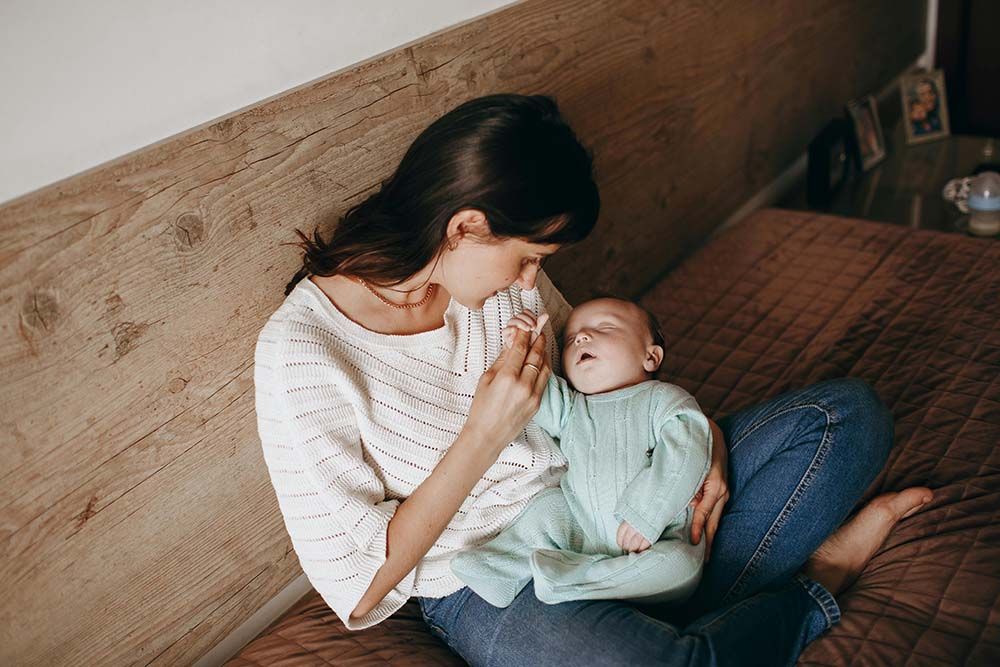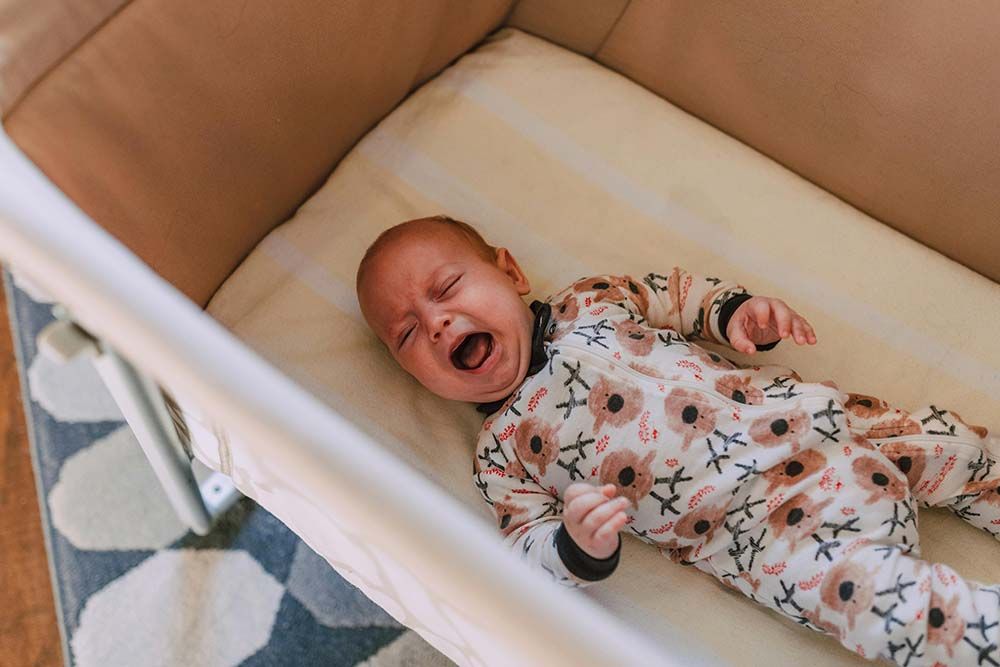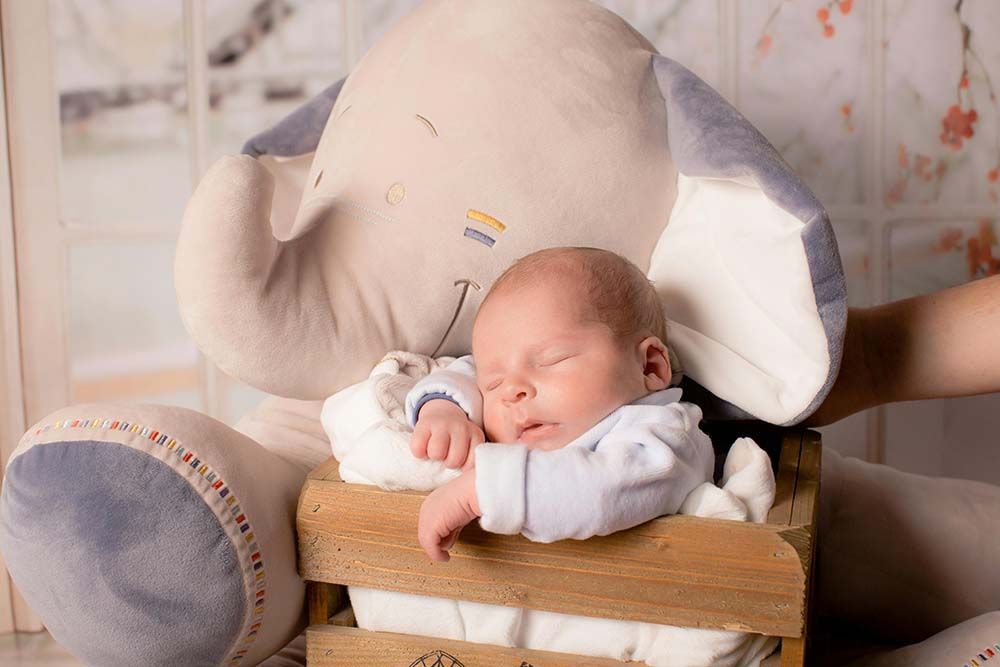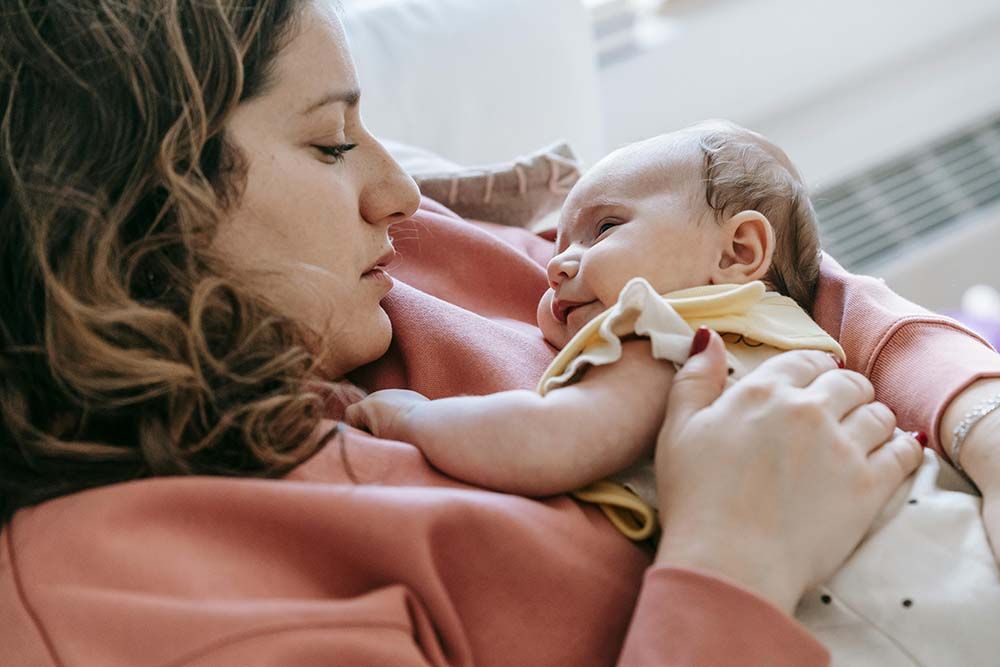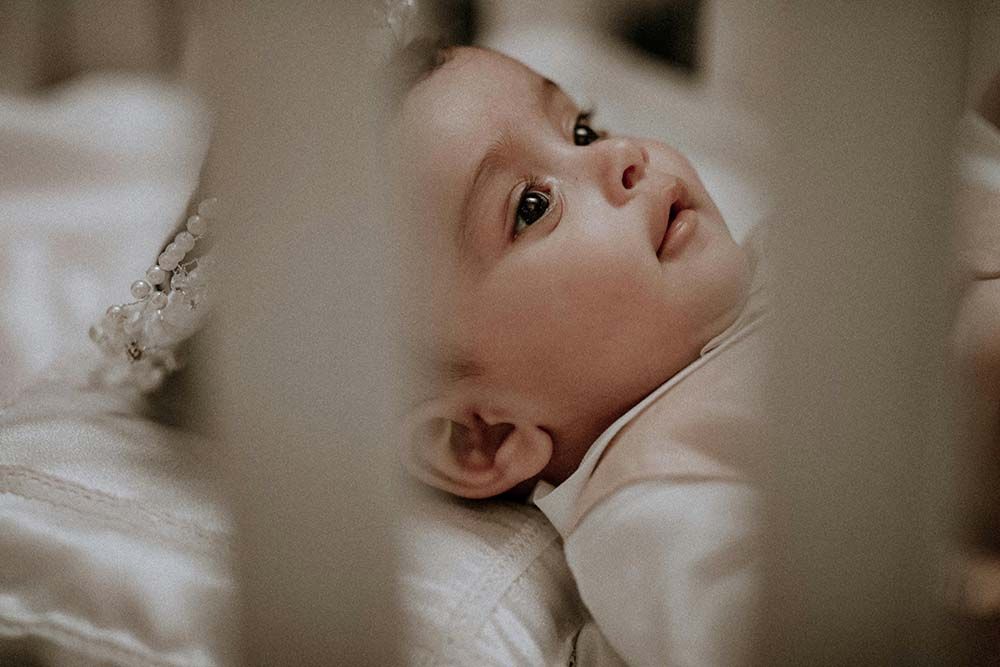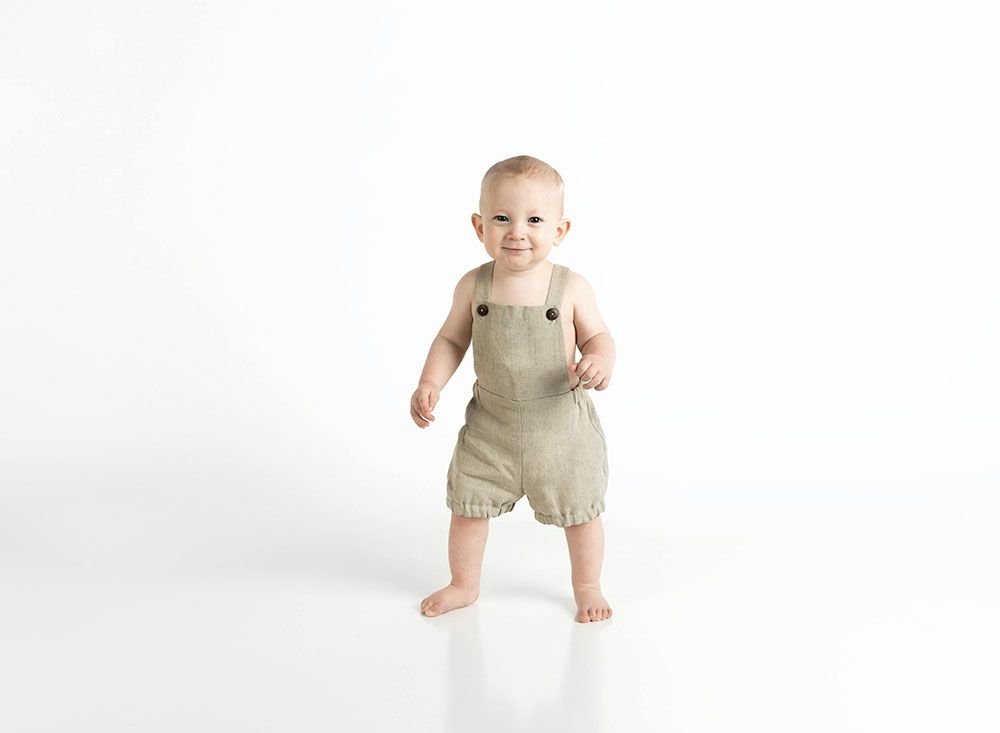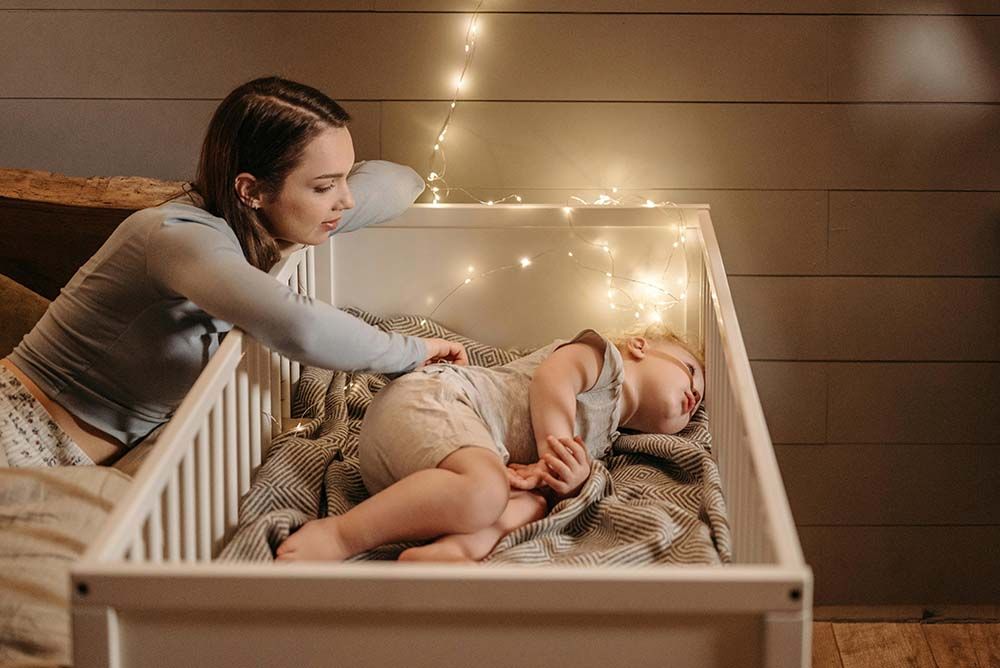

As babies grow, potty training is another important event in children’s development milestones. However, according to some parents, their children have already mastered the potty skills, but they return to wet their pants or beds frequently after a period, which is named as potty training regression by some experts. Here, this article will reveal the causes of it together with according solution. If your baby has encountered similar issue, welcome to read this article to find a suitable solution.
IN THIS ARTICLE
What is Potty Training Regression?
What are the Specific Behaviors in Potty Training Regression?
What is the Typical Age for Potty Training Regression?
Why is my Toddler Regressing with Potty Training?
How to Deal with Potty Training Regression?
Can Potty Training Cause Sleep Regression?
What is Potty Training Regression?
Potty training regression refers to the phenomenon where a child who has already mastered the toilet skills and can independently use the toilet suddenly recurs the previously overcome problems or behaviors. That is to say, the child may experience symptoms that are similar to the state of not being trained, such as wetting in bed or pants, or refusing to use the toilet. For example, a child was able to actively tell adults that he or she needs to go to the toilet, and could sit on the toilet to complete bowel movements and urination, but suddenly began to wet his or her pants frequently. This is a manifestation of regression in potty training.
Then, what's the difference between a potty training regression and an accident?
This regression is often a gradual process, which may last for a period of time, such as several weeks or even months, during which the baby's toileting behavior remains unstable. And it is usually related to multiple factors, such as the child's psychological state, changes in living environment, or physiological development.
While accidents mainly refer to one-time, unexpected urinary and fecal incontinence. This situation usually occurs by chance and does not occur as frequently as toilet training regression. It may be caused by a specific, sudden event. For example, a child may forget to go to the bathroom due to being too engrossed in playing. Or a child is playing outdoors and becomes incontinent because there are no toilet facilities around and there is no time to find a toilet. Or it could be that the child drank a large amount of water, causing the bladder to become overfilled in a short period of time and wet their pants before they could react.
How to handle:
It is important for parents to understand the differences firstly and then take corresponding targeted actions to help their toddles to overcome the issue. The regression requires more patience and attention. Parents are supposed to understand the potential psychological or emotional factors, and then provide stable support. Or it may even require some training to help children restore normal toilet habits.
But for accidents, parents do not need to worry excessively about this situation, they should put the emphasis on helping their children learn how to recognize signals to use the toilet and go to the toilet promptly, thereby reducing accidents by establishing regular toilet habits. If you have noticed that your little one frequently experiences such situations, you should consider whether there is a problem of a regression and take appropriate measures.
Bed-Wetting vs. Potty Training Regression
Bed-Wetting is a relatively complex disease condition that typically refers to involuntary urination during sleep in children aged 5 and above. According to the standards of the American Academy of Pediatrics, if children over 7 years old have nocturnal enuresis at least once a week for at least three months, they can be diagnosed as bed-wetting. This may be related to genetic factors, insufficient secretion of antidiuretic hormone at night, small bladder capacity, or difficulty in waking up from deep sleep. It may also be associated with other health problems, such as urinary system infection or diabetes.
Toilet training regression is usually related to temporary life changes or emotional problems, and does not require special treatment. While bed-wetting may involve physiological mechanisms and potential health issues, requiring more professional medical intervention, including behavioral therapy (such as nighttime alarm clock therapy), drug therapy (such as antidiuretic hormone or other drugs), and other treatment methods.
What are the Specific Behaviors in Potty Training Regression?
If your toddle is experiencing such regression, you can recognize this phenomenon through the following characteristics or behaviors:
- Frequently wet pants or poop pants
- Resist using the restroom
- Show obvious emotional fluctuations, more anxious, irritable, or frustrated than usual
- Begin to wet the bed again at night
- Avoid discussing topics about toileting
- Regression to infantile behaviors, such as sucking the thumb
What is the Typical Age for Potty Training Regression?
Generally speaking, it can occur at any age where toilet training is complete or close to completion, commonly during early childhood. It is not only good for them to develop rapidly, but also is an important time for them to explore themselves and learn new skills. Here is a typical age group:
2-3 years old: Children at this age have just started toilet training, so it is a normal fluctuation during this process if there is regression. At this stage, children may temporarily be unable to fully control their excretion due to strong curiosity, scattered attention, or fear of new things.
3-4 years old: Many children have already mastered basic toilet skills at this age, but if they encounter significant changes in their lives (such as adding new family members, moving, changing kindergartens, etc.), the regression may emerge subsequently. This is because they are struggling to adapt to new environments and challenges, which may temporarily affect their toilet habits.
4-5 years old: By this age, most children are able to control their excretion well. However, if they encounter severe psychological pressure or physical discomfort, there is still a possibility of the recurrence of regression. In addition, some children may begin nighttime toilet training at this stage, and nocturnal enuresis is a common problem.
5-7 years old: During this period, children have basically completed toilet training, but the regression may still occur. However, to be honest, toilet training regression is less common in this age group than in early childhood and preschool.
Why is my Toddler Regressing with Potty Training?
If you notice any regression signs in your child, it is important to maintain patience and understanding. Don't scold or punish children for their mistakes, it will only increase their sense of pressure. On the contrary, parents can try to identify the specific reasons and provide targeted assistance. Below are listed some possible reasons for your checking.
1. Changes in living environment
Changes in family members: For example, the arrival of a new member in the family (such as the birth of a younger brother or sister) may make children feel uneasy, causing them to experience emotional fluctuations and revert back to relying on diapers.
Moving or environmental changes: Moving or changes in the home environment may cause children to feel uneasy, especially if they need to adapt to a new room or bathroom environment, which may lead to regression.
2. Emotional and psychological pressure
Anxiety or stress: Children may feel anxious or uneasy due to family disputes, parental divorce, and high parental work pressure, which may affect their toilet training.
Newly enrolled in kindergarten/school: Going to kindergarten or school is a major turning point in a child's life, during which they may face pressure from unfamiliar environments, strangers, and social interactions, which may affect their toilet habits.
Fear psychology: Some children may develop fear of toilets or the flushing process, especially if they have had unpleasant experiences in the past (such as the sound of toilet flushing scaring them).
3. Physiological developmental factors
Physiological demand changes: The child's bladder control ability gradually matures, but occasional inability to control urination or defecation may occur due to uneven physiological development, leading to regression.
Physical discomfort: For example, health problems such as urinary tract infections, constipation, diarrhea, etc. may cause discomfort in children and affect the progress of toilet training.
4. Parental education methods
Excessive coercion or pressure: If parents exert too much pressure on their children's toilet training, or force them to fully master toilet use before a specific age, it may lead to children developing a rebellious mentality and even regression.
Inconsistent training methods: If parents have different rules and expectations for toilet training (such as one parent allowing their child to wet their pants casually while another parent demands strict requirements), it may also lead to confusion and regression in the child.
Inappropriate reward or punishment methods: Rewards and punishments are commonly used during toilet training, but excessive reliance on rewards or punishments may have negative effects, leading to behavioral regression in children.
5. Physiological or health issues
Constipation: If children have constipation, they may develop fear of going to the bathroom due to difficulty or discomfort in defecation, leading to regression.
Urinary tract infection: Urinary tract infection may cause discomfort or pain during urination in children, leading them to refuse to use the restroom and experience regression.
6. Other changes in life
Sudden changes in independence: When children start to engage in independent activities or feel that they are getting bigger and want to control more things on their own, they may develop rebellious emotions and return to the behavior of peeing their pants.
Major events or holidays, such as holidays, travel, etc., may temporarily affect children's toilet training due to changes in their lifestyle habits and daily routines.
7. Social interaction and imitation
Peer influence: It is vulnerable for children to get influenced by their peers. If a child sees other children still using diapers, they may return to a dependency on diapers, especially in collective environments such as kindergarten.
8. Over reliance on diapers or training pants
If a child continues to use diapers or training pants frequently after learning to use the toilet, the child may feel that they do not need to rely entirely on the toilet and may revert back to relying on diapers.
How to Deal with Potty Training Regression?
It is a normal phenomenon that children may experience during the process of learning how to use the toilet. Although this may make parents feel frustrated, it is temporary and will gradually be overcome with time and patience in most case. Here are some strategies to deal with regression in toilet training:
1. Stay calm and patient
Toilet training regression is usually caused by the pressure, changes or mood fluctuations in life, such as family relocation, parents' divorce, welcoming new brothers and sisters, etc. Parents should try to avoid showing disappointment or anger towards their children. Stay calm, continue to encourage children with a positive attitude, and avoid punishment.
2. Review possible reasons
Regression may be related to changes in a child's emotions, physical health, or living environment. Check the following possible reasons:
Emotional stress: such as new family members, close relatives falling ill, school pressure, etc.
Physical discomfort: such as constipation, diarrhea, or other gastrointestinal problems.
Excessive training or high expectations: Children may not have been adequately prepared at the beginning, or the training may have been too rushed.
If you find any physical problems, consult a doctor instantly. If it is due to emotional reasons, provide more support and understanding to the child.
3. Rebuilding confidence and providing positive feedback
Restart the process of toilet training. You can try to reduce children's stress by focusing on their progress and effort, instead of overemphasizing the success and failure of training. For example, you can try to encourage children with positive language and rewards.
4. Restore early training steps
If there is a significant regression in toilet training, you can return to the initial training steps and gradually guide the child by:
Taking the child to the restroom at a fixed time.
Using books, songs, or games to help children understand the steps and importance of using the restroom.
Maintaining a relaxed and pleasant toilet environment to avoid causing fear or anxiety in children.
5. Consistency and routine
Establish a fixed toilet schedule. For example, you can take your child to the bathroom after meals or waking up in the morning. Maintaining consistency can help children form habits and reduce anxiety.
6. Do not use punishment
Punishing children, especially in the event of accidents, may increase their anxiety and stress, leading to more severe regression. On the contrary, provide children with comfort to help them recover from failure.
7. Avoid excessive stress
Sometimes parents may feel anxious because their children have not successfully completed toilet training, and this anxiety can be transmitted to the children. Try to avoid excessive pressure and give children enough time and space. Each child's developmental progress is different, and there should be no coercion or excessive intervention.
8. Timely rewards
Rewards can effectively motivate children, but it should be noted that the way of rewards should be reasonable, avoiding giving children the wrong motivation to go to the bathroom for the sake of rewards.
9. Encourage self-management
Gradually encourage children to go to the bathroom independently. For example, allowing children to pull down their pants, flush water, and even choose their favorite toilet supplies. Giving them some autonomy can enhance their confidence.
10. Maintain communication with teachers or caregivers
If children go to school or daycare, parents can also communicate with teachers or caregivers to ensure that their toilet training methods at school or daycare are consistent with those at home. Collaborative efforts help children establish a consistent training pattern.
Can Potty Training Cause Sleep Regression?
Toilet training does have the potential to cause a sleep regression, mainly because children may feel stressed, anxious, or uncomfortable as they learn and adapt to new toileting skills. In addition, frequently waking up the baby at night to toilets can also interfere with sleep. However, this is usually temporary. As long as parents take appropriate measures and give their children enough time to adapt, their children's sleep patterns should gradually recover.
To help children return to previous sleep, parents can take positive encouragement during toilet training and avoid excessive punishment or criticism to reduce children's anxiety. What’s more, parents can adopt a gradual training approach. Gradually guide your child to use the toilet during the day, and keep nighttime diapers or training pants at night to reduce the number of nighttime wake-ups. After your child has adapted to using the toilet during the day, you can slowly try to reduce nighttime diapers, but be patient and a proper transition period is important. Removing nighttime diapers completely too early may cause your child to feel uncomfortable at night because they do not have enough control. If your child occasionally wets the bed at night, avoid excessive attention and give them time to adjust to the change in physical control.





